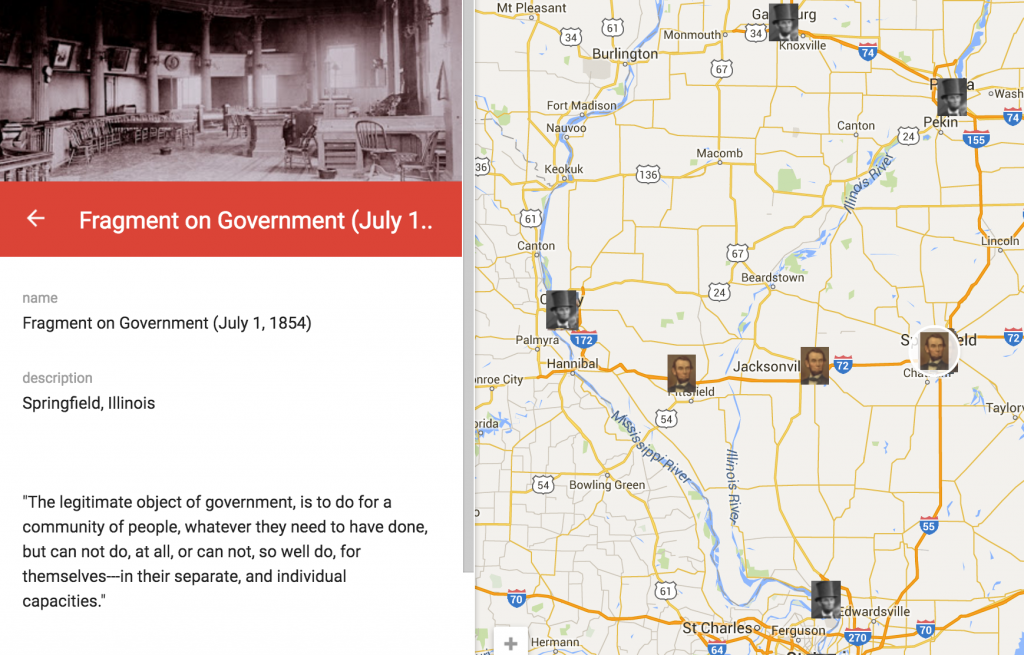Ranking
#103 on the list of 150 Most Teachable Lincoln Documents
Annotated Transcript
On This Date
Custom Map
How Historians Interpret
“Some said government should do no more than protect its people from insurrection and foreign invasion and spend the rest of its time dispassionately observing the way its people played out the cards that fate had dealt them. He scorned that view. He called it a ‘do nothing’ abdication of responsibility. ‘The legitimate object of government,’ he said, ‘is to do for the people what needs to be done, but which they cannot, by individual effort, do at all, or do so well, for themselves. There are many such things…,’ he said. So he offered the ‘poor’ more than freedom and the encouragement of his own good example: he offered them government. Government that would work aggressively to help them find the chance they might not have found alone. He did it by fighting for bridges, railroad construction and other such projects that others decried as excessive government. He gave help for education, help for agriculture, land for the rural family struggling for a start. And always, at the heart of his struggle and his yearning was the passion to make room for the outsider, the insistence upon a commitment to respect the idea of equality by fighting for inclusion.”
NOTE TO READERS
This page is under construction and will be developed further by students in the new “Understanding Lincoln” online course sponsored by the House Divided Project at Dickinson College and the Gilder Lehrman Institute of American History. To find out more about the course and to see some of our videotaped class sessions, including virtual field trips to Ford’s Theatre and Gettysburg, please visit our Livestream page at http://new.livestream.com/gilderlehrman/lincoln

